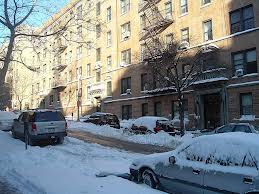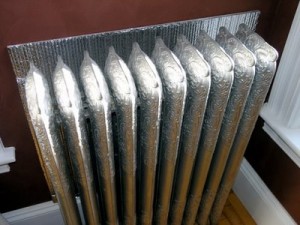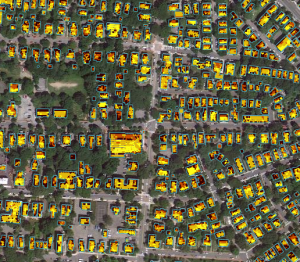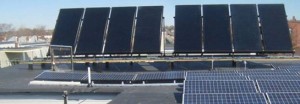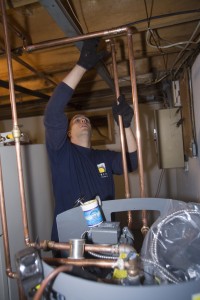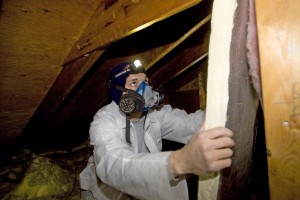As the weather gets chillier, we all start looking forward to—or dreading—winter. In order to be comfortable while still being energy smart, there are some easy but important steps you can take. There is plenty of information out there on how to weatherize your entire home to keep heating costs down, but many of those actions don’t apply to people who are renting or living in a multi-family condo. Here are some tips that will still insulate your home and lower your heating bill even if you aren’t able to do bigger things like replace your boiler or add insulation in your walls:
- Place 3M window insulator film on the inside of all of your windows to restrict drafts. It goes on and comes off easily without leaving a mark, and it’s a very cheap solution.
- Programmable thermostats are inexpensive and need only a screw driver to install, so depending on your heating system type you can install it and then uninstall it when you move out.
- Open your curtains during the day to take advantage of solar heating and close them at night to keep the heat in. Some curtains also have insulating properties.
- If you rent, ask your landlord to take advantage of the free Mass Save Energy Assessments and mention that CEA can help landlords with energy projects.
- Use draft stoppers underneath doors that lead outside or to an unheated hallway or staircase. They are usually cloth tube-shaped objects filled with foam or pellets (like a bean bag). You can even put them underneath doors for rooms you plan on heating with a space heater to fully block cold drafts coming in from the rest of your space.
- If you heat with oil, which is notoriously expensive, you can save on your bill by investing in a floor-standing electric space heater to more cheaply heat the room you are currently occupying, while keeping the thermostat low. You can save 3% on your heating bill for every degree that you turn it down.
- Keep your thermostat very low (but above 50 degrees so your pipes don’t freeze) while no one is home, and put it as low as is comfortable when you are home and awake. Before you go to bed, turn it back down a few degrees. If you have warm blankets and a space heater, you won’t need to heat your whole space any more than that.
- If your home has radiators, place an insulating panel between it and the wall. Insulating radiator panels reflect heat away from the wall and out into your home, improving radiator efficiency by 10-20%.
With these quick fixes, and perhaps a hot cup of tea each night, you will stay comfortable all winter long without using too much fuel or electricity.
Learn More! Don’t be an Energy Turkey this Thanksgiving.
Wednesday November 14th at 7pm
Cambridge College, 1000 Massachusetts Avenue, Cambridge MA
Stay warm and SAVE MONEY through DIY apartment energy efficiency tips
Enjoy free apple cider and snacks
Win great prizes

